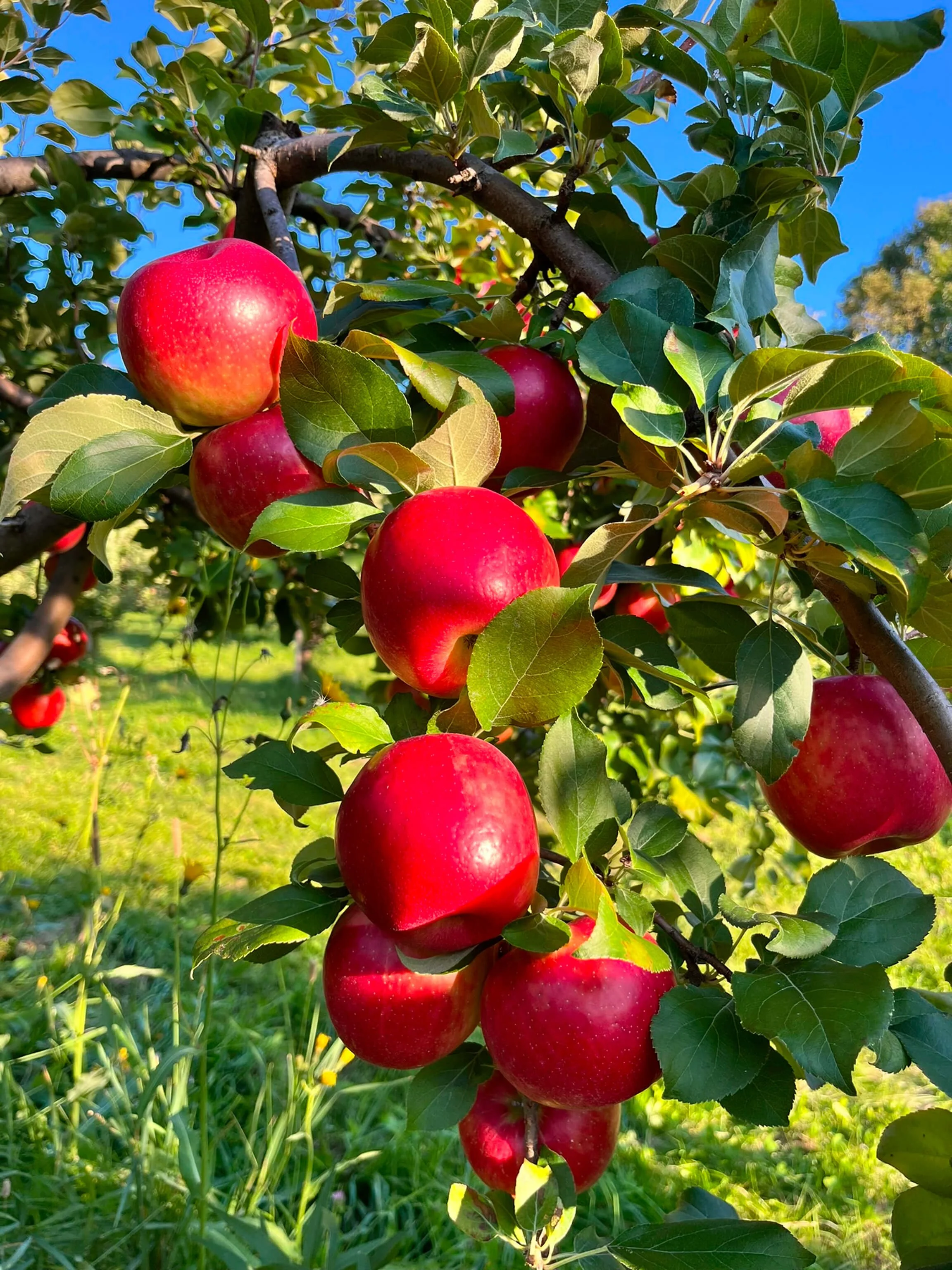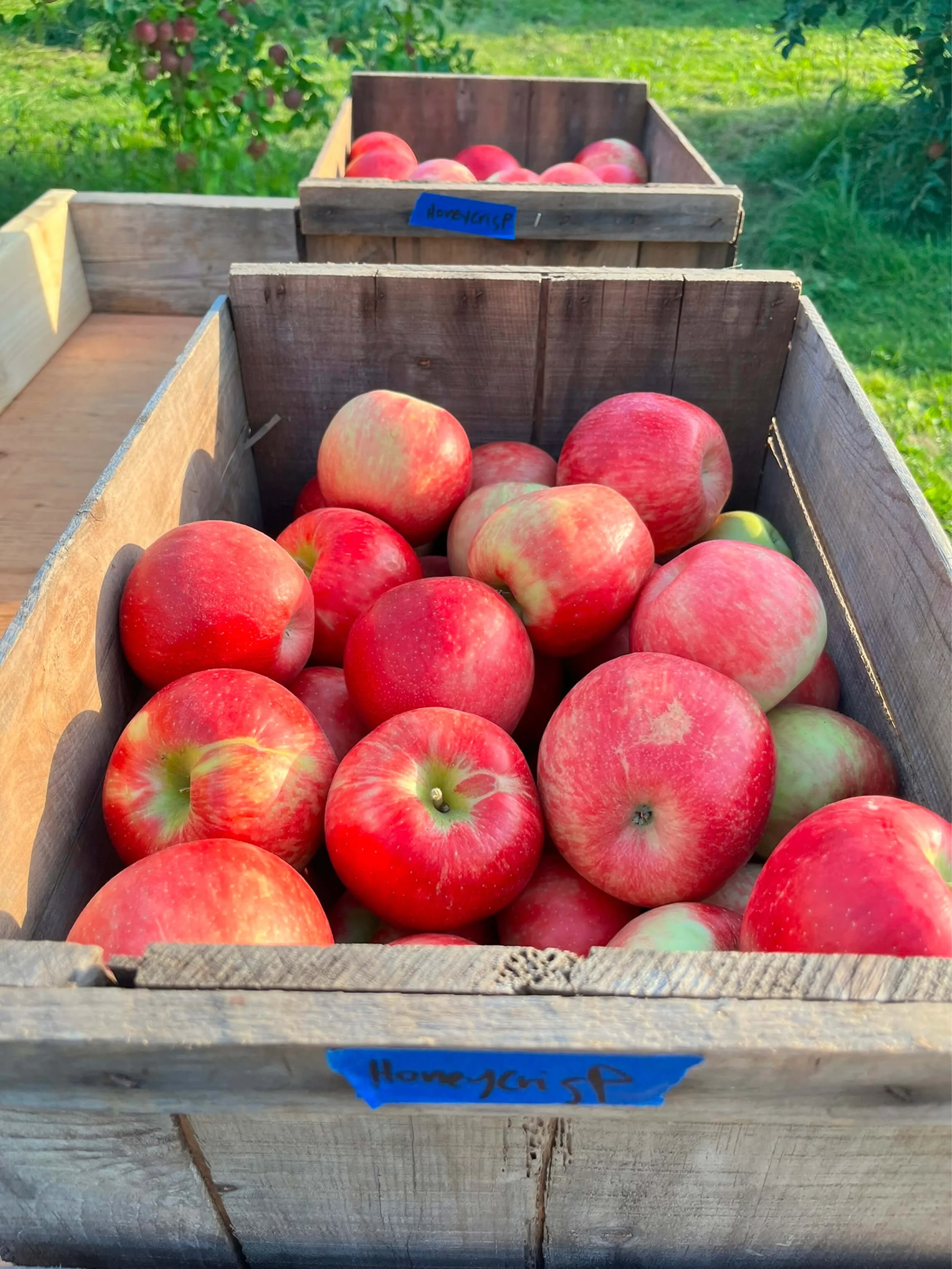Pick-Your-own Apples in the White Mountains!
Our orchards are nestled in a small town in the White Mountains of northern New Hampshire.
We have about 1,400 trees of more than 50 different varieties of apples (and some pears!).
All of our apples are great for eating fresh, and we can also recommend varieties for making pies, sauce, cider, or other uses.
Pickers are welcome to mix varieties in their bags to get a taste of many different types of apples.
Apple varieties naturally ripen at different times of the fall. We have varieties ripening from late August through mid-October, so visitors can find something new every week.
orchard practices
Growing apples is hard work. Apple trees and their fruit are tasty treats for a wide variety of bacteria, fungi, insects, birds, and mammals.
Historically, orchards were some of the worst culprits for the use of damaging pesticides to deal with these threats. Thankfully, management systems have evolved a long way.
We follow a set of practices known as Integrated Pest Management, where we aim to handle the threats to our apple trees and fruit while maintaining the greatest human, soil, insect, fungi and overall ecosystem health possible.
As part of these practices we do a lot of work by hand, which takes days and days of effort, instead of employing some chemical treatments.
We also monitor insects in the orchard and data from our weather station to inform computer models which predict when specific pests and diseases are at their most threatening. These are skills that Emily gets to put this into practice out in the woods as a forest health specialist, as well as at home in the orchard.
We make intentional decisions to allow a level of damage to our fruit, to reduce the amount of spray treatments we use. We're OK with a few spots on our apples.
When interventions are necessary, we target them to the exact pest and the exact time required. We don't spray indiscriminately all season long and we don't use products that kill everything they touch.
We choose the products we use very carefully, and will, in all cases, choose those that are safer for bees, non-pest insects, other wildlife, our customers, and ourselves.
Growing Practices: Common Questions
-
No. Strict organic practices do not always allow us to use the most targeted and safest products for our customers, ourselves, and our environment.
Organic practices do not allow the use of compounds made by humans. We use both products which are organic and those that are synthetically produced.
Pesticide products have advanced greatly in recent decades, with the worst being banned and many new products providing much more targeted effects. Most organic chemicals are less targeted and less effective and therefore must be applied in larger quantities and more frequently than non-organic ones. Some organic compounds are even dangerous to us as applicators.
In all cases, we choose the products that are the safest for ourselves, our customers, and our ecosystem.
-
Yes. This isn't a formalized certification, but we certainly spray a lot less than most commercial orchards.
-
We wish we could. But, orchards which go without any spray treatments risk both the loss of a crop in any given year and the death of the trees due to accumulated pests and pathogens.
Wild, unsprayed trees which produce apples usually have a crop every 2 years, have small apples with many blemishes, and may be filled with insect larvae and bacteria that can cause illness. These apples are great for hard cider (the fermentation process effectively decontaminates most of the bad stuff) but not great for fresh eating or fresh cider.
-
Get in touch! We don't have anything to hide, and are happy to discuss any aspect of our practices with you. That’s why local farms are great!




